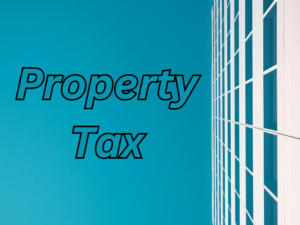Introduction
A homeowner checking a tenant’s background is highly important as it helps to mitigate potential risks like non-payment of rent. Property damage and disruptive behavior by providing insight into a prospective tenant’s financial history, criminal record, and rental references. Making informed decisions about who to rent to is crucial for protecting your property and minimizing potential headaches as a landlord.

Table of Contents
- Why Tenant Background Checks Matter for Landlord?
- How Screening Tenants Can Protect Your Property?
- Financial and Security Benefits of Tenant Background Checks
- Avoiding Late Payments and Evictions with Proper Screening
- How to Conduct a Tenant Background Check Effectively?
- The Legal Aspects of Tenant Screening
- Frequently Asked Questions
Why Tenant Background Checks Matter for Landlord?
Tenant background checks are crucial for landlords because they provide valuable insights into a potential tenant’s financial responsibility, criminal history, and rental history. Allowing them to make informed decisions about who to lease minimizes the risk of non-payment. They are property damage and potential safety concerns for the landlord and other tenants on the property.
Key Reasons Why Tenant Background Checks Matter
- Assessing Financial Reliability: Credit reports reveal a tenant’s payment history. Indicating their ability to consistently pay rent on time.
- Identifying Potential Criminal Activity: Criminal background checks can identify individuals with a history of crimes that might pose a safety risk to the property and other tenants.
- Evaluating Rental History: Checking past rental records can reveal if a tenant has a history of evictions or damage to previous properties.
- Mitigating Legal Issues: By performing thorough background checks, landlords can reduce the likelihood of legal disputes arising from non-payment or disruptive behavior.
- Protecting Property Value: Selecting responsible tenants helps maintain the overall condition of the property and preserve its market value.
- Building a Stable Tenant Community: Carefully screening tenants can contribute to a positive and harmonious living environment for all residents.
How Screening Tenants Can Protect Your Property?
Screening tenants by conducting background checks helps protect your property by identifying potential risks like a history of evictions, poor credit, criminal activity, or unstable income. Allowing you to choose tenants who are more likely to pay rent on time. They maintain the property well and respect the lease agreement, minimizing damage and legal issues for the landlord.
- Financial stability: Checking credit scores and income verification helps ensure tenants can afford rent payments, reducing the risk of non-payment and potential eviction proceedings.
- Rental history: Reviewing past rental references can reveal if a tenant has a history of damaging property, breaking leases early, or not paying rent on time.
- Maintaining property value: By selecting responsible tenants who care for the property, you can prevent significant damage and maintain the overall value of your investment.
- Legal protection: Thorough screening can help avoid legal disputes with tenants who might not fulfill their lease obligations.
Financial and Security Benefits of Tenant Background Checks
A thorough tenant background check helps landlords minimize risks and protect their investments. Here’s how it benefits both finances and security:
- Ensures Consistent Rental Income
- Lowers the Risk of Property Damage
- Enhances Safety for Other Tenants and Neighbors
- Reduces Legal and Eviction Costs
Avoiding Late Payments and Evictions with Proper Screening
Late rent payments and evictions can be a landlord’s worst nightmare. Proper tenant screening can help prevent these situations.
- Review credit history and financial stability: Check for a history of late payments, high debt, or bankruptcy. Ensure the tenant’s income is at least 2.5–3 times the rent amount.
- Verify Rental History: Contact previous landlords to check if the tenant paid rent on time. Ask about any lease violations, damages, or disputes.
- Conduct Employment Verification: Confirm the tenant’s job status and salary with their employer. Look for a stable employment history, as frequent job changes could signal financial instability.
- Check for Past Evictions: A history of evictions is a major red flag. If an eviction is on record, ask the tenant for an explanation.
How to Conduct a Tenant Background Check Effectively?
To protect your property and ensure a smooth rental experience, follow these steps for an effective background check:
- Ask for Previous Rental Agreement: Collect basic information, including income, employment, and rental history. Ask for references from previous landlords.
- Run a Credit Check: Use services like Experian, Equifax, or TransUnion. Look for a good credit score and responsible financial behavior.
- Verify Employment and Income: Ask for recent pay stubs, tax returns, or employer confirmation. Ensure they have a stable income to afford the rent.
- Contact Previous Landlords: Ask about the tenant’s payment history, behavior, and any lease violations. A good reference from a previous landlord is a strong positive sign.
- Evaluate the Findings and Make a Decision: Set clear approval criteria before reviewing applications. If red flags appear, consider discussing them with the applicant before making a final decision.
The Legal Aspects of Tenant Screening
Tenant screening must comply with local and national housing laws to avoid discrimination and legal issues.
- Fair Housing Laws: Landlords cannot reject applicants based on race, religion, gender, disability, or family status. Screening criteria should be applied consistently to all applicants.
- Credit and Background Check Regulations: In many countries, landlords must obtain tenant consent before running a credit or background check.
- Privacy and Data Protection Laws: Tenant information must be kept secure and confidential. Misusing personal data can lead to legal consequences.
- Eviction and Screening Restrictions: Some regions have laws limiting the use of eviction history in tenant screening. Be aware of local regulations to ensure compliance.
Conclusion
Tenant background checks are a vital step in ensuring a smooth, hassle-free rental experience for landlord. By screening tenants properly, landlords can avoid financial risks, property damage, and legal issues while also creating a safe and trustworthy rental environment. While there are a few exceptions where background checks may not be necessary (such as renting to family or short-term tenants), they are generally a smart investment that helps landlords secure reliable and responsible renters.
More Information
Stay updated on the latest developments in the real estate industry by following the openplot information.
Our platform offers valuable insights and updates, along with informative articles and market reports. Openplot.com helps find or sell a home, which is a significant milestone.
Frequently Asked Questions
Q. Are criminal background checks required?
A. It depends on the local laws. Some areas restrict how criminal records can be used in tenant screening. Check your state or country’s regulations before making a decision.
Q. How much does a tenant background check cost?
A. Tenant screening services typically cost $25–$50 per applicant, depending on the depth of the report. Some landlords pass this cost to the applicant.
Q. Can a tenant dispute incorrect background check information?
A, Yes. If a tenant believes there is an error in their report, they can dispute it with the screening company or credit bureau. Landlords should allow time for corrections if needed.
Q. How long does a tenant background check take?
A. Most background checks take between 24 to 72 hours, depending on the service provider and the depth of the check.
Q. Can a landlord deny a tenant based on a background check?
A. Yes, but only for valid reasons such as poor credit history, past evictions, or financial instability. Discrimination based on race, religion, gender, disability, or family status is illegal under Fair Housing Laws.
Q. Does a tenant need to consent to a background check?
A. Yes. Landlords must get written consent from tenants before running a credit or background check, as required by privacy and consumer protection laws.














